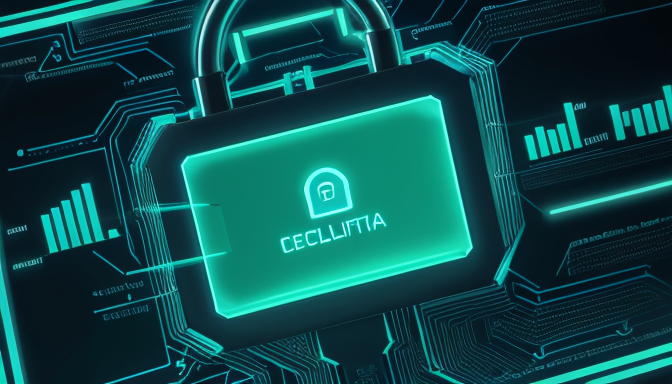In today’s digital age, where our lives are increasingly intertwined with the online world, the need for robust security measures has never been greater. Blockchain technology emerges as a revolutionary solution that promises to enhance security, privacy, and trust across various online platforms. But how exactly does it do this? Imagine a digital ledger that is not only transparent and decentralized but also tamper-proof. This is the essence of blockchain. By distributing data across a network of computers, it eliminates single points of failure and makes it incredibly hard for hackers to manipulate information.
One of the most compelling aspects of blockchain is its immutability. Once data is recorded on the blockchain, it cannot be altered or deleted without consensus from the network. This feature is crucial for maintaining the integrity of your online activities, whether you’re shopping, banking, or sharing personal information. Think of it as a digital fortress that guards your data against unauthorized access and fraud.
Moreover, blockchain empowers users by giving them control over their personal information. Unlike traditional systems where data is often stored on centralized servers, blockchain allows individuals to manage their own data securely. This shift not only reduces the risk of data breaches but also fosters a sense of trust in digital transactions. With blockchain, you can confidently engage in online activities, knowing that your information is protected.
As we delve deeper into the world of blockchain, it’s clear that its potential to secure our online lives is immense. However, while the benefits are significant, it’s essential to remain aware of the challenges that come with this technology. Understanding both sides will prepare us for a future where blockchain plays an integral role in our digital security landscape.
The Basics of Blockchain Technology
Understanding blockchain technology is essential to grasp its security features. At its core, blockchain is a decentralized digital ledger that records transactions across many computers. This decentralization means that no single entity has control over the entire chain, making it inherently secure. Imagine a group of friends keeping a shared diary where each entry is verified by everyone before it gets written down. This is similar to how blockchain operates, ensuring transparency and trust among users.
One of the key principles of blockchain is transparency. Every transaction is visible to all participants in the network, which makes it nearly impossible to alter past records without detection. This characteristic not only enhances security but also builds trust among users. Additionally, blockchain is immutable, meaning once data is recorded, it cannot be changed or deleted. This is akin to writing in stone rather than on paper—once it’s etched, it stays there forever.
To further illustrate, let’s break down the fundamental features of blockchain:
- Decentralization: No central authority controls the data, reducing the risk of a single point of failure.
- Transparency: All transactions are visible to authorized participants, enhancing accountability.
- Immutability: Data, once recorded, cannot be altered, ensuring integrity and trustworthiness.
These features make blockchain a powerful tool for enhancing online security. Whether you’re making a simple purchase or transferring sensitive data, the principles of blockchain create a safer digital environment. As we delve deeper into its applications in cybersecurity, it becomes clear that understanding these basics is the first step toward leveraging blockchain for a more secure online life.

Applications of Blockchain in Cybersecurity
Blockchain technology is revolutionizing the field of cybersecurity, offering innovative solutions that address some of the most pressing challenges in the digital world. Imagine a world where your personal data is not just protected but fortified by a technology that is inherently secure and transparent. This is where blockchain comes into play, providing a robust framework for safeguarding sensitive information.
One of the most significant applications of blockchain in cybersecurity is its ability to enhance data integrity. With traditional databases, a single point of failure can lead to catastrophic breaches. However, blockchain operates on a decentralized network, meaning that data is stored across multiple nodes. This decentralization ensures that even if one node is compromised, the overall integrity of the data remains intact. Furthermore, each transaction is recorded in a way that is immutable, making it nearly impossible for hackers to alter past records without detection.
Another critical application is in preventing fraud. By utilizing blockchain, organizations can create a transparent audit trail for transactions, which deters fraudulent activities. For example, in the financial sector, blockchain can help verify the authenticity of transactions in real-time, reducing the risk of chargebacks and identity theft. This level of transparency not only protects businesses but also fosters trust among consumers.
Moreover, blockchain enhances authentication processes. Traditional methods often rely on passwords, which can be easily compromised. Blockchain introduces the concept of self-sovereign identity, allowing users to control their personal data and authenticate themselves without relying on third-party services. This not only improves security but also empowers individuals to manage their digital identities more effectively.
In summary, the applications of blockchain in cybersecurity are vast and varied, ranging from enhanced data integrity and fraud prevention to improved authentication processes. As we continue to embrace this technology, the potential for a more secure online environment becomes increasingly attainable.
Benefits of Using Blockchain for Online Privacy
In today’s digital age, where our personal information is often just a click away, online privacy has become a significant concern. Enter blockchain technology, a revolutionary approach that not only protects but empowers users to take control of their data. Imagine having a vault where you can store your information, accessible only to you—this is what blockchain offers!
One of the most compelling benefits of using blockchain for online privacy is the ability to maintain data ownership. Unlike traditional systems where your data is stored on centralized servers, blockchain decentralizes this information. This means that your personal data is not held hostage by a single entity, reducing the risk of unauthorized access and breaches. With blockchain, you can decide who gets to see your information and when.
Moreover, blockchain enhances transparency in transactions. Each transaction is recorded on a public ledger, visible to all but immutable, meaning it cannot be altered or deleted. This transparency fosters a sense of trust among users, as they can verify the integrity of the data without relying on third parties. Think of it as having a clear glass wall between you and the digital world—everyone can see what’s happening, but only you control the keys!
Additionally, blockchain technology significantly reduces the chances of identity theft. By using cryptographic techniques, it creates a secure environment where your identity is shielded from prying eyes. This means that even if someone tries to access your data, they would face an uphill battle due to the complex encryption methods employed.
In conclusion, the benefits of leveraging blockchain for online privacy are profound. From empowering users with data ownership to enhancing trust through transparency, blockchain is paving the way for a safer digital experience. As we continue to navigate the online landscape, embracing this technology could be the key to safeguarding our personal information.

Challenges and Limitations of Blockchain Security
While blockchain technology offers a myriad of benefits for online security, it is not without its challenges and limitations. One of the most pressing issues is scalability. As more users and transactions flood the network, the system can become congested, leading to slower processing times. Imagine trying to get through a crowded subway station during rush hour; it can be frustrating and inefficient! Similarly, blockchain networks can struggle to keep up with increasing demands, which may deter businesses from fully embracing the technology.
Another significant concern is regulatory uncertainty. Governments around the world are still figuring out how to manage and regulate blockchain technology. This lack of clear guidelines can create hesitation among businesses and consumers alike. It’s like navigating a maze without a map; you might end up lost or making poor decisions due to the confusion surrounding the rules.
Additionally, there’s the issue of user education. For blockchain to be effective, users need to understand how it works and its implications for security. Unfortunately, many people still view it as a complex and intimidating technology. To bridge this gap, educational initiatives are crucial. This is akin to teaching someone to ride a bike; without proper guidance and practice, they may never feel comfortable taking the leap.
Lastly, while blockchain itself is designed to be secure, it is not immune to human error. Mistakes such as losing private keys or falling for phishing scams can lead to significant losses. Therefore, while blockchain provides a robust framework for security, it is essential to remember that the human element can still introduce vulnerabilities.
In conclusion, while blockchain technology has the potential to transform online security, addressing these challenges is vital for its widespread adoption and effectiveness. By tackling scalability, regulatory issues, user education, and human error, we can pave the way for a more secure digital future.
The Future of Blockchain in Online Security
As we peer into the crystal ball of technology, one thing becomes clear: blockchain is set to revolutionize online security. Imagine a world where your personal data is not just protected but empowered, where every transaction is transparent, and fraud is a distant memory. This is not just a dream; it’s the future that blockchain promises. With its decentralized nature, blockchain can create a fortress around your digital life, ensuring that you are in control of your information.
But what does this future look like? For starters, we can expect more robust authentication methods. Traditional passwords may soon be a relic of the past as blockchain enables biometric solutions and cryptographic keys that are nearly impossible to forge. This shift could drastically reduce identity theft and unauthorized access, making our online experiences safer.
Moreover, as more businesses adopt blockchain technology, we will likely see a surge in trustworthy digital ecosystems. Companies will be compelled to use blockchain to verify their operations, ensuring that customers can trust the integrity of their data. This could lead to a more transparent marketplace where consumers feel secure in their transactions.
However, it’s essential to acknowledge the hurdles ahead. Scalability, regulatory frameworks, and user education are significant challenges that need addressing. The blockchain community is already working on solutions, like layer-2 scaling technologies, which promise to enhance transaction speeds without sacrificing security. In this evolving landscape, staying informed and adaptable will be key.
In conclusion, the future of blockchain in online security is not just about protecting data; it’s about creating a safer, more trustworthy internet. As we embrace this technology, we are not merely witnessing a change; we are participating in a revolution that could redefine our digital experiences forever.
Frequently Asked Questions
- What is blockchain technology?
Blockchain is a decentralized digital ledger that records transactions across many computers. This technology ensures that the recorded data is immutable and transparent, making it a robust solution for enhancing online security.
- How does blockchain enhance online security?
By using encryption and decentralization, blockchain protects data integrity, prevents fraud, and enhances authentication processes. This means that your online activities can be more secure, reducing the risk of hacks and data breaches.
- Can blockchain improve my online privacy?
Absolutely! With blockchain, you have greater control over your personal data. It minimizes the chances of unauthorized access and helps build trust in digital transactions by allowing users to verify their identities without compromising sensitive information.
- What are the challenges of using blockchain for security?
While blockchain offers many benefits, it also faces challenges like scalability issues, regulatory concerns, and the need for user education. These factors can hinder its widespread adoption and effectiveness in enhancing online security.
- What does the future hold for blockchain in online security?
The future looks promising! As technology evolves, we can expect more innovative applications of blockchain in cybersecurity, leading to a more secure digital landscape for businesses and individuals alike.

